Advantages of Home Energy Storage System: Why It Matters for Modern Energy Solutions
As residential energy demand evolves and grid stability becomes a growing concern, more businesses and integrators are evaluating the advantages of home energy storage system solutions. While traditionally viewed as consumer-facing products, home battery systems are increasingly part of B2B conversations—dealers, distributors, and energy service providers recognize the value of offering such solutions to their customers.
In this article, we explore the key benefits of adopting home energy storage, highlight its role in the broader energy ecosystem, and provide guidance for businesses considering partnerships or product integration.
- Energy Independence and Reliability
One of the most important advantages of home energy storage system adoption is improved reliability. With a properly sized battery, homeowners can store solar energy during the day and use it at night, reducing reliance on the utility grid. For B2B players, this reliability translates into strong customer value—installers and resellers can position these systems as a safeguard against outages, a growing concern in regions with unstable grids or frequent storms.
Key Points:
- Minimizes exposure to grid fluctuations and power cuts.
- Provides backup power for essential loads like lighting, HVAC, and communications.
- Strengthens trust in integrators and distributors offering dependable solutions.
👉 For readers who want a deeper understanding of how residential energy storage systems are designed, structured, and applied, we recommend this complete guide to home BESS systems.
- Cost Savings and Energy Optimization
Energy storage allows households to shift energy usage to off-peak hours. By charging batteries when rates are low and discharging during peak demand, users achieve long-term savings on electricity bills.
For dealers and integrators, this opens a value proposition beyond “backup power.” Customers increasingly want systems that not only protect but also optimize. Businesses that can deliver this dual function gain a competitive edge.
Advantages for Businesses:
- Expands cross-selling opportunities (solar panels, inverters, monitoring systems).
- Builds long-term customer relationships through demonstrable ROI.
- Strengthens product portfolios with future-proof technology.
- Environmental Sustainability
Another critical advantage of home energy storage system deployment is its contribution to sustainability. Pairing batteries with solar panels significantly reduces carbon footprints and supports broader clean energy goals.
For B2B partners, positioning storage as a green investment helps attract environmentally conscious homeowners and businesses. This aligns with ESG (Environmental, Social, Governance) trends, which are increasingly relevant for procurement and investment decisions.
- Intelligent System Management
Modern home energy storage solutions are not just static batteries. They include smart energy management features that optimize charging, discharging, and integration with other devices. This intelligent system management capability enhances user experience and reduces maintenance needs.
For integrators and resellers, it creates opportunities for upselling connected services and ensuring customer satisfaction. Solutions with robust monitoring and control are easier to support remotely, reducing service costs.
👉 To explore practical solutions tailored for the residential market, you can review our dedicated home energy storage system portfolio.
- Scalability and Flexibility
Another often overlooked advantage of home energy storage system adoption is scalability. Many battery solutions are modular, meaning customers can start with a smaller system and expand capacity as energy demand grows.
This flexibility is particularly attractive for distributors and installers:
- Easier to match customer budgets with scalable options.
- Creates natural opportunities for repeat sales and long-term partnerships.
- Provides customers with confidence that their system will adapt to changing needs.
- Market Differentiation for B2B Stakeholders
For businesses, offering home energy storage is more than meeting current demand—it’s about differentiation. The U.S. residential battery market is growing at double-digit rates annually, driven by solar adoption, incentives, and policy shifts toward grid resilience.
Dealers, distributors, and EPCs (Engineering, Procurement, and Construction firms) who integrate energy storage into their portfolios position themselves as forward-thinking solution providers. This strategic advantage can open doors to new markets, strengthen client relationships, and support long-term growth.
- Policy and Incentive Alignment
Government incentives such as the Investment Tax Credit (ITC) in the U.S. and various state-level rebates make residential energy storage more attractive. For businesses, staying informed on policy developments is key to guiding customers toward smart purchasing decisions.
By aligning with government incentives, B2B providers can:
- Shorten customer payback periods.
- Strengthen project feasibility.
- Increase adoption rates and system sales.
Conclusion
The advantages of home energy storage system adoption are clear: enhanced reliability, cost optimization, sustainability, intelligent management, and scalability. For B2B stakeholders—whether distributors, resellers, or integrators—these systems represent not only a technological upgrade but also a strategic opportunity.
As customer expectations evolve, offering advanced residential battery solutions is no longer optional; it’s a business imperative. Companies that embrace this shift today will be better positioned to serve tomorrow’s energy landscape.
👉 To learn more about practical options for your customers and explore tailored solutions, visit our home energy storage system portfolio.


